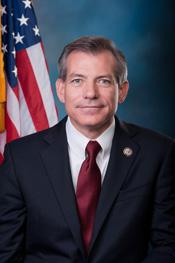0
DEBT Act
2/8/2025, 5:53 AM
Summary of Bill HR 402
Currently, when the United States approaches its debt limit, the Treasury Department is forced to take extraordinary measures to prevent default. These measures can include suspending investments in certain government funds or redeeming existing investments. However, these actions can only provide a temporary solution and do not address the underlying issue of the debt limit.
Under this proposed legislation, the Secretary of the Treasury would be required to provide a detailed report to Congress outlining the current debt situation and the potential consequences of reaching the debt limit. This would allow Congress to have a better understanding of the financial implications and make more informed decisions regarding the debt limit. By increasing transparency and communication between the Treasury Department and Congress, the Debt Limit Transparency Act aims to prevent last-minute negotiations and potential default scenarios. This bill seeks to ensure that Congress is fully informed and prepared to address the nation's debt limit in a timely and responsible manner.
Congressional Summary of HR 402
Debt Explanation Before Taxwriters Act or the DEBT Act
This bill requires the Secretary of the Treasury to appear before the House Ways and Means Committee and the Senate Finance Committee before the federal debt limit is reached or extraordinary measures are taken to prevent the United States from defaulting on its obligations.
The term extraordinary measures generally refers to a series of actions that the Department of the Treasury may implement to allow the United States to borrow additional funds without exceeding the debt limit. The measures generally include suspensions or delays of debt sales and suspensions or redemptions of investments in certain government funds.
The bill requires the Secretary of the Treasury to appear before the committees to provide a detailed explanation of (1) the extraordinary measures that Treasury will take and the administrative costs of taking the measures, and (2) any reversal of such measures and any other changes in the funding of federal government obligations.
Read the Full Bill
Current Status of Bill HR 402
Bipartisan Support of Bill HR 402
Total Number of Sponsors
2Democrat Sponsors
0Republican Sponsors
2Unaffiliated Sponsors
0Total Number of Cosponsors
0Democrat Cosponsors
0Republican Cosponsors
0Unaffiliated Cosponsors
0Policy Area and Potential Impact of Bill HR 402
Primary Policy Focus
Alternate Title(s) of Bill HR 402
Comments

Faye Hoover
10 months ago
I think it's important for the Secretary of the Treasury to appear before Congress before the debt limit is reached or extraordinary measures are taken to prevent default. Who benefits from this bill?
